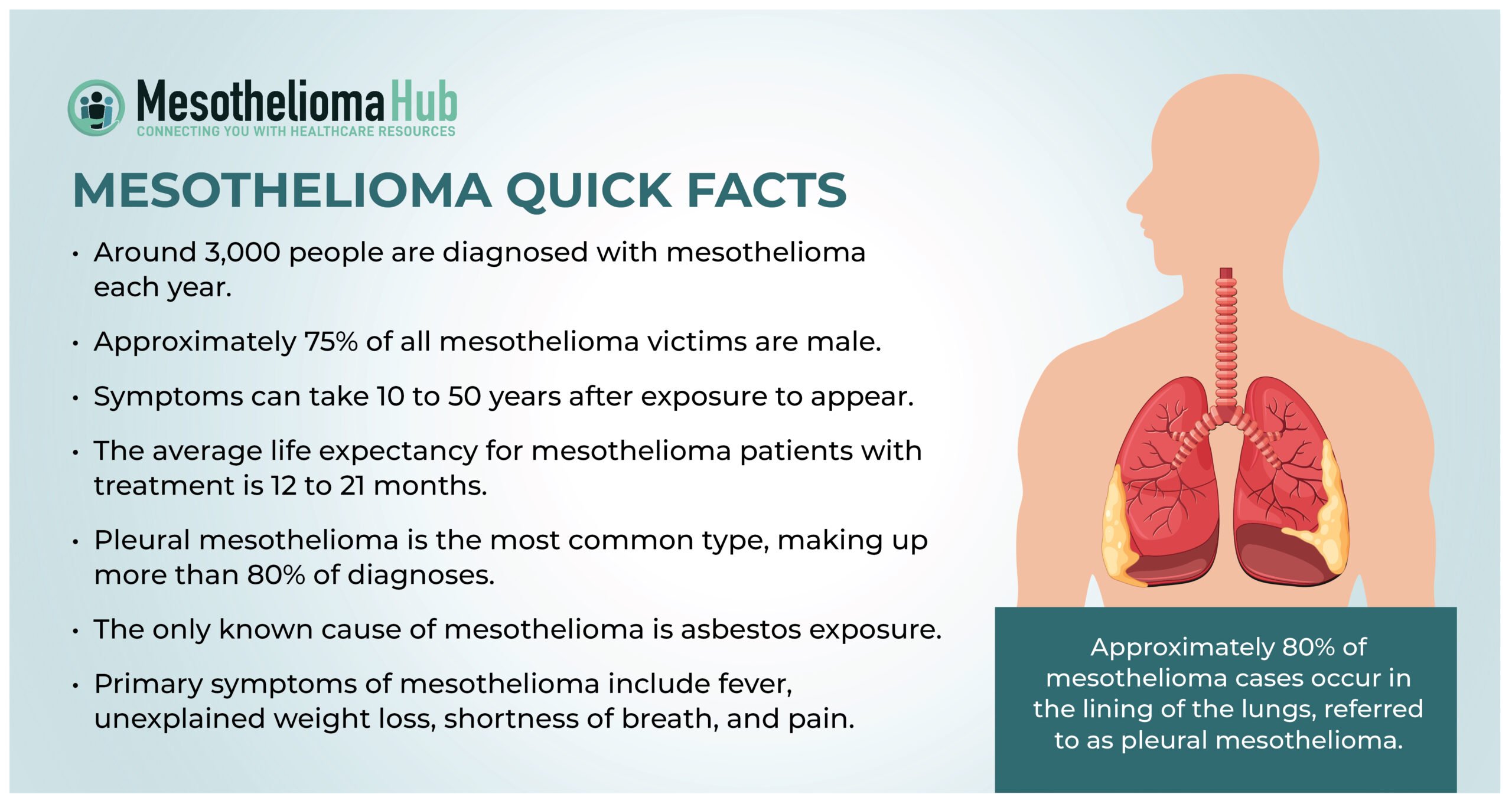How Long Does Mesothelioma Take to Kill in 2023/2024 Stage 1 – 4
Mesothelioma has various stages and for each stage, there gets to a point where life expectancy is analysed. This is why patients are conscious of How Long Does Mesothelioma Take to Kill at every particular stage.

Mesothelioma is one of the deadliest forms of cancer, which is caused by exposure to asbestos. The disease is difficult to diagnose and treat, and the prognosis for patients is often poor. One of the most common questions that people have about mesothelioma is how long it takes to kill. The answer to this question is complex and depends on several factors.
Stages of Mesothelioma
Mesothelioma is classified into four stages, with stage 1 being the least advanced and stage 4 being the most advanced. The prognosis for patients with mesothelioma varies based on the stage of the disease. Patients diagnosed with stage 1 mesothelioma have the best prognosis, with an average life expectancy of 21 months. However, patients diagnosed with stage 4 mesothelioma have the worst prognosis, with an average life expectancy of just 12 months.
Factors that Affect Life Expectancy
Several factors can affect the life expectancy of patients with mesothelioma. These factors include age, gender, overall health, and the type of mesothelioma. Younger patients with good overall health tend to have a better prognosis than older patients with poor health. Women also tend to have a better prognosis than men. Patients with peritoneal mesothelioma, which affects the lining of the abdomen, tend to have a better prognosis than those with pleural mesothelioma, which affects the lining of the lungs.
How Long Does Mesothelioma Take to Kill in 2023/2024 Stage 1 – 4
The latency period, the time between asbestos exposure and diagnosis, can be decades long. For many patients diagnosed 15 to 60 years after their initial exposure to asbestos, the disease is already in an advanced phase when they begin to suffer symptoms of shortness of breath and chest pain.
At this late stage of diagnosis, the average survival time is less than a year.
According to the American Thoracic Society, malignant mesothelioma is a fatal disease with median survival time of less than 12 months from first signs of illness of death.
However, some studies have shown that among patients where it is diagnosed early and treated aggressively, about half can expect a mesothelioma life expectancy of two years, and one-fifth will have a mesothelioma life expectancy of five years.
As a comparison, for patients whose mesothelioma is advanced, only five percent can expect to live another five years.
Early diagnosis of the cancer often means that the cancer will be localized, with the cancer cells found only at the body site where the cancer originated.
The localized cancer would be identified as Stage 1 and can involve a surgically removable tumor. Once the cancer cells have spread beyond that original location, the mesothelioma is considered advanced and surgery is often no longer an option.
The importance of early diagnosis of this cancer cannot be overemphasized. Treating a limited area of cancer is easier, and includes more treatment options, than trying to treat cancer that has spread, or metastasized, to several sites or throughout the body.
Mesothelioma is typically diagnosed within three to six months of the first visit to a doctor with complaints about breathing problems or chest and abdominal pain.
Anyone who has worked around asbestos is urged to see a physician for screening for malignant cancer. Screening methods are advancing, and various blood tests now exist that may identify mesothelioma.
The blood tests focus on a protein in the blood that is released into the blood stream by cells. One test checks for a protein known as SMRP, or soluble mesothelin-related peptide.
The biomarker measures the amount of SMRP in a person’s blood. Abnormally high levels may indicate the presence of mesothelioma.
- Stage 1
At stage 1, the cancer is generally small or the tumor has not grown deeply into nearby tissues. There is no spread to the lymph nodes or other parts of the body. It is often referred to as early-stage cancer. - Stage 2 and Stage 3
In general, these 2 stages indicate larger cancers or tumors that have grown more deeply into nearby tissue. They may have also spread to lymph nodes but not to other parts of the body. - Stage 4
Also called advanced or metastatic cancer, stage 4 cancers have spread to the lymph nodes and throughout the body.
How long does mesothelioma take to kill a patient at each stage
| Stage 1 | Stage 2 | Stage 3 | Stage 4 |
|---|---|---|---|
| 21+ months | 19 months | 16 months | 12 months |
Treatment Options
The treatment options for mesothelioma depend on the stage of the disease and the overall health of the patient. Surgery, chemotherapy, and radiation therapy are the most common treatment options. Patients with stage 1 or 2 mesothelioma may be candidates for surgery to remove the tumor, followed by chemotherapy and radiation therapy. Patients with stage 3 or 4 mesothelioma may not be candidates for surgery and may receive chemotherapy and radiation therapy to manage their symptoms.
SEE ALSO:
Why You Should Not Hold Your Breath in Electric Shock | What Causes Electric Shock in the Human Body